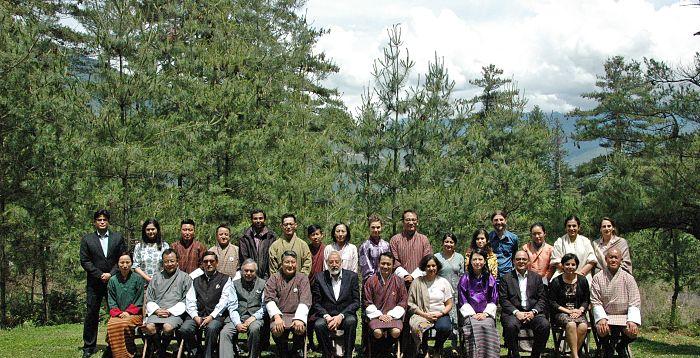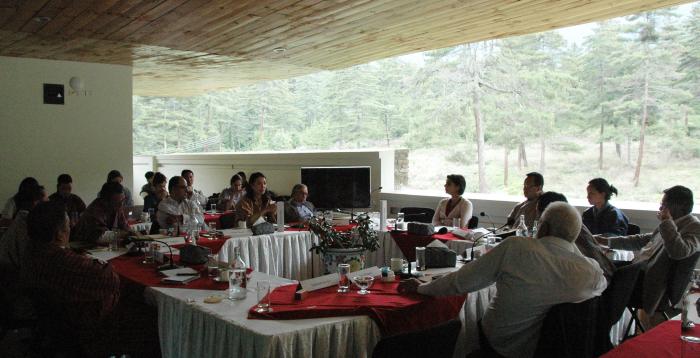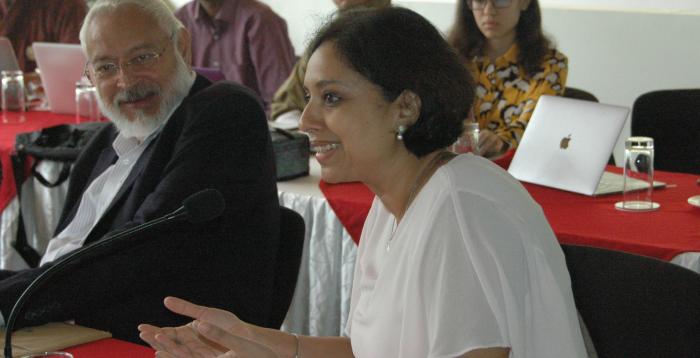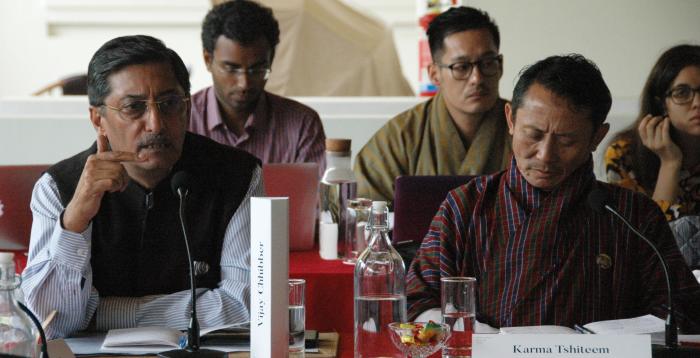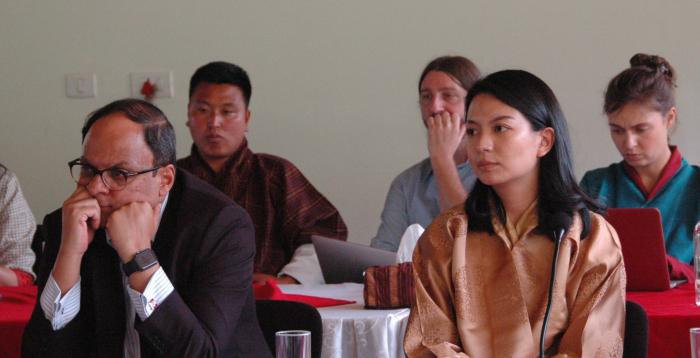PHILOSOPHERS' RETREAT 2019 - INCULCATING RESILIENCE IN YOUTH
The panel discussions that took place on June 14 and June 15, 2019 as part of the second Philosophers’ Retreat focused on the theme, ‘Inculcating Resilience in Youth’. The topic was a follow-up to the 2018 retreat that centered around the ‘Purpose of Education’ and its role in preparing our youth for the ever-changing world. It was noted that resilience is one of the main traits to help the youth deal with the various challenges of life and the inevitability of change.
Resilience was described as the ability of a person to balance toughness and tranquility as she navigates life’s challenges and opportunities. Resilience enables a person to maintain strength and equanimity throughout life’s inevitable turbulence, with an internal stability and perspective which allows her to stay true to her continuous pursuit of personal ideals. It was recognised that resilience manifests in myriad ways depending on the person and the particular situation but in all cases, it enables a person to do the needful in order to continue moving toward her goals: if a situation requires mundane work, she will draw upon patience; if a situation requires extreme effort, she will muster strength; and if a person is knocked down by an oppositional force, she will pick herself up, often bouncing back stronger.
There was a discussion on the Buddhist perspective on the inevitability of adversities: it was noted that even the luckiest of us deal with sickness, aging and death. Many of the panelists shared deeply challenging experiences, such as loss of loved ones, poverty, war, natural calamities and loss of meaning in life. Others shared examples of life’s mundane realities, which demand sustained energy and motivation for long periods of time. Reflecting on all of the situations, panelists agreed that the education system is not the only social structure which must be engaged to inculcate resilience in youth: families, organizations and communities must also support the development of this quality. It was also unequivocally agreed upon that the infusion of technology in all aspects of life is causing unprecedented rates of change and increasing unpredictability in our lives, thus making resilience an indispensable trait for rising generations.
The panelists noted that resilience is a well-researched topic and there is a lot of literature on it. Based on the existing resources, it was concluded that resilience can indeed be inculcated as opposed to a fixed biological trait in humans. The resources cited included the ABCDE (Acceptance, Belief, Commitment, Discovery, Evaluation) strategy, concepts of Tragic Optimism and Positive Psychology, and various lesson plans used for inculcating resilience. Popular literature included Grit: The Power of Passion and Perseverance and Drive: The Surprising Truth About What Motivates Us. The first book makes a point that perseverance and determination are key to overcoming challenges, while the second one discusses how autonomy, self-mastery and purpose are key sources of intrinsic motivation that is necessary to thrive. Other resources and concepts discussed were the Philosophy of Stoicism, Self-Determination Theory and Emotional Intelligence.
One of the salient points of the discussion was the wealth of Eastern tradition and wisdom that speaks to the notion of resilience. The non-sectarian teachings of Buddha say that mind matters most. The idea of ‘mind over matter’ shows the importance of knowing oneself and developing mindfulness and self-mastery to bounce back from any situation. Reflection and mindfulness can play a central role in a person developing resilience. This wisdom has been adopted to develop the ‘Thought Model’ by viewing the idea of thought at a granular level. Our thoughts and reactions to circumstances lead to feelings, which in turn result in actions and consequences. We may not be in a position to control circumstances but we can choose what kind of thoughts we want to harbour, which will lead to the corresponding feelings, actions and consequences. The ability to apply the Thought Model skillfully can result in resilience.
The various themes on resilience that were discussed are listed below. The details have been nuanced and presented in a larger report.
- ‘Be your personal best’
- Character-building
- Role of parents, teachers and society
- Types of resilience
- Technology and Social Media
- Adversity and Diversity
- Individual and Community Level
- Dispositional v/s Situational
- Curriculum
- In Awe of life
To read the detailed report about the programme, please click here.
If you would like more information about the programme, please write to us at contact@cepeace.org

